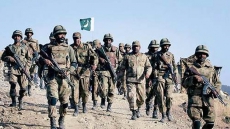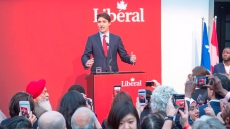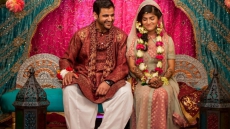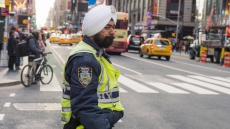The introduction of caste legislation in the UK is among the many issues being used to sway Indian- origin voters as Britain went to polls on Thursday.
Operation Dharmic Vote, launched a few years ago, has highlighted a short-list of candidates that support their so-called “dharmic duties” by opposing the introduction of such a legislation which they claim will cause conflict within Britain’s Hindu community.
The UK government had launched a consultation on the issue earlier this year following a nationwide campaign in favour of such a legislation by Dalit bodies in the country.
“If re-elected, I would seek the support of the government and fellow MPs to repeal both the caste clause in the legislation and Parliament to overturn any adverse judgments in case law,” says Bob Blackman, seeking re-election as Conservative MP for Harrow East – an area of north-west London with a large proportion of British Hindus.
His view has received some cross-party support from other MPs of the ruling Conservatives and opposition Labour party, including Indian-origin candidates like Tory first-timer Ameet Jogia fighting for Brent North in London against Labour stalwart Barry Gardiner; Paul Uppal fighting to regain the Wolverhampton South West seat for the Conservatives; Sujata Barot fighting as an Independent against longest-serving Indian-origin MP Keith Vaz in Leicester East; and Rahoul Bhansali, another Tory first-timer contesting from Brent Central in London.
The Liberal Democrat party, which has fielded 14 Indian-origin candidates in this election, has made it a manifesto pledge to support the introduction of caste legislation while other parties are more wary of the issue.
The Indian diaspora in the UK, estimated between 1.2 and 1.5 million, has traditionally been supportive of the Labour party but the 2015 General Election had seen a swing towards the Tories.
Sunder Katwala, director of independent think tank British Future, believes that British-Indian voters in this election will ultimately vote based on wider national issues of concern such as Brexit.
He explained: “British-Asian voters mostly share the same concerns as their white neighbours in this election: the economy, the National Health Service, the party leaders and Brexit.
“While Theresa May’s pitch to deliver Brexit will appeal to the third of Asian voters who voted to leave the European Union, and to many Remainers who now want the UK to implement the referendum decision, she must strike a balance.
“A broader domestic agenda of extending opportunity, which should include race equality and tackling discrimination, will be important to secure that trust.” The Conservatives this time have fielded 13 Indian-origin candidates, including incumbent MPs Priti Patel, Alok Sharma, Shailesh Vara, Rishi Sunak and Suella Fernandes and hopefuls Rahoul Bhansali, Samir Jassal, Ameet Jogia, Resham Kotecha, Reena Ranger, Meera Sonecha, Minesh Talati and Paul Uppal.

Among the unelected Tory candidates, Uppal and Kotecha have the maximum chance of winning in their constituencies of Wolverhampton South West and Coventry North-West respectively.
The Labour Party’s tally also stands at five sitting MPs seeking re-election – Keith Vaz, sister Valerie Vaz, Virendra Sharma, Seema Malhotra and Lisa Nandy.
The party has additionally fielded Neeraj Patil, Rohit Dasgupta, Hitesh Tailor, Navin Shah, Navendu Mishra, Tanmanjeet Singh Dhesi, Kuldip Singh Sahota, Manjinder Kang and Preet Kaur Gill.
Among the Labour party’s new group of prospective parliamentary candidates, Gill and Dhesi have a strong chance to be among the first British Sikhs to enter the House of Commons from Birmingham Edgbaston and Slough constituencies respectively.
British Sikhs have been campaigning to get the electorate to take notice of these Sikh candidates, who they hope will go on to make history as the first female Sikh MP (Gill) and first turbaned MP (Dhesi).

“Anyone disillusioned with politicians or discouraged from voting should this time not stay at home. A high voter turnout similar to that for the Brexit vote of 72.2 per cent will speak loudest by showing a strong defiance to terrorists,” said Sikh Federation UK in its polling day statement.
While many of the 10 Indian-origin MPs elected in May 2015 are defending quite comfortable margins this time, the changed Brexit reality since the last election means a heightened sense of uncertainty.
If the opinion polls are to be believed, the ruling Conservative party is largely forecast to have a smoother ride under Theresa May’s leadership than the opposition Labour.
The Liberal Democrats, which faced a severe drubbing in 2015, are hoping to revive their fortunes somewhat by focussing on a limited number of anti-Brexit constituencies.
Given the uncertainty, it is the ethnic minority vote that is believed to hold the key in many of the target or marginal seats, which are constituencies with a very slim majority for the sitting MP leaving it up for grabs for any party.

“We found that the Conservatives, Labour and the Liberal Democrats need the BME (black and minority ethnic) vote in 2017 to win their targets. Even considering current polling showing Theresa May’s party ahead, failure to take a major slice of the BME vote could mean her Commons majority is much lower than predicted,” forecasts advocacy group Operation Black Vote.
According to its analysis, which way the BME vote goes will have a big impact on the final tally, as almost half (96) of the top 200 most marginal seats have ethnic minority populations large enough to help determine the results in those constituencies.






